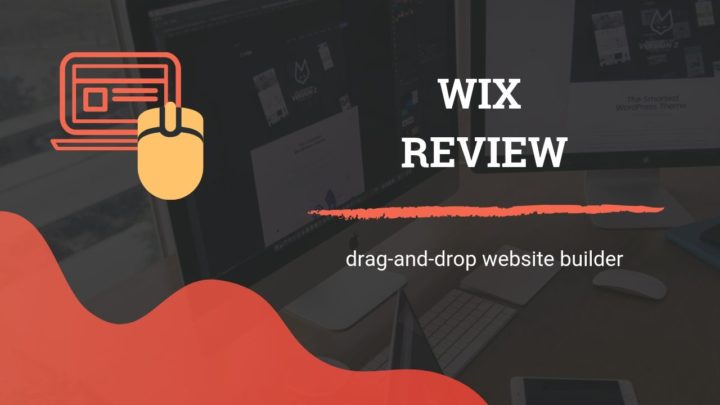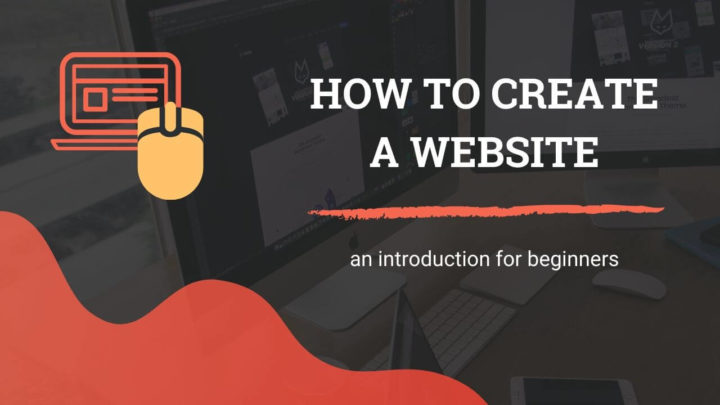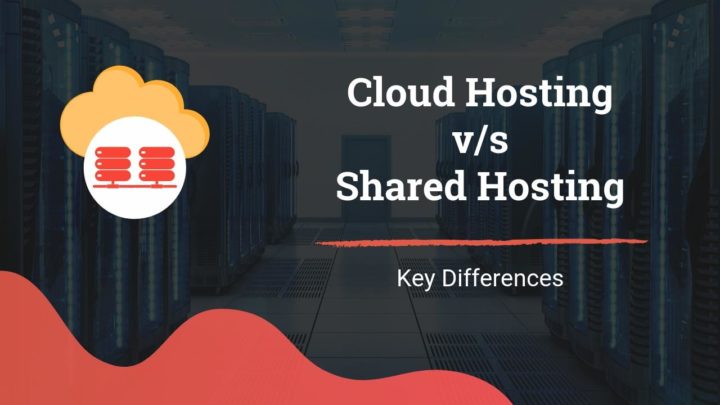Are you planning to start a blog, but confused about which platform to choose?
Once I was also in the same place. That’s why I’ve done a study about the best blogging platforms available out there so that it saves your time.
From that, I’ve understood one thing - no two platforms are the same.
So, what’s best for your blog may not be the best for mine. For example, most people recommend WordPress, but it may not be the most appropriate one for you.
In this post, you will get a bird’s eye view of the top blogging platforms, along with my opinion about each of them.
To make it fair, I’ve used Twitter followers (as of Feb 2021) count to sort the list, instead of my personal preferences.
With that, let us dive into it.
List of Best Blogging Platforms in 2020
1. Tumblr
When you look at Tumblr blogs, one thing becomes clear. They mostly contain small posts, usually image-based.
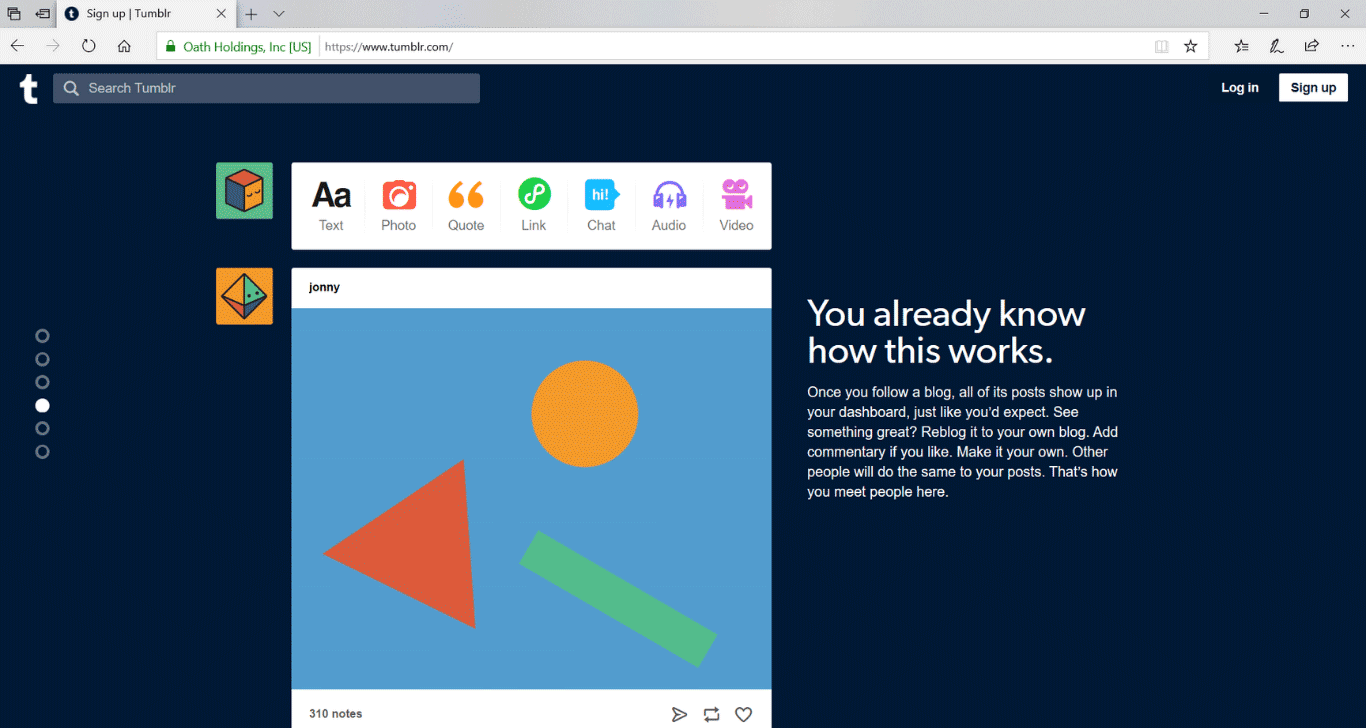
So, if you are about to create a personal blog with short-form content, Tumblr can be a great choice. That doesn’t mean that you cannot publish long articles on Tumblr. But there are other platforms best suited for such content.
Another strength of Tumblr is its social networking feature. It allows you to follow other Tumblr blogs, and others can follow yours.
- Cost: Free
- Publishing experience: Since Tumblr focuses on short-form content, you have to select a content type before writing a post. The editing interface is quite simple, which looks more like an advanced Twitter editor.
- Flexibility: Tumblr offers a collection of themes, which allow you to customize the look and feel of your blog.
- Ideal For: Microblogs and personal blogs
- Twitter follows (as of 2021): 2.2M
Update: Tumblr has been acquired by Automattic, the company behind WordPress.Com [see this post from WPTavern].
2. Medium
If Tumblr is for short-form content, Medium is just the opposite. Launched in 2012, Medium has gained its popularity as a long-form content publishing platform.
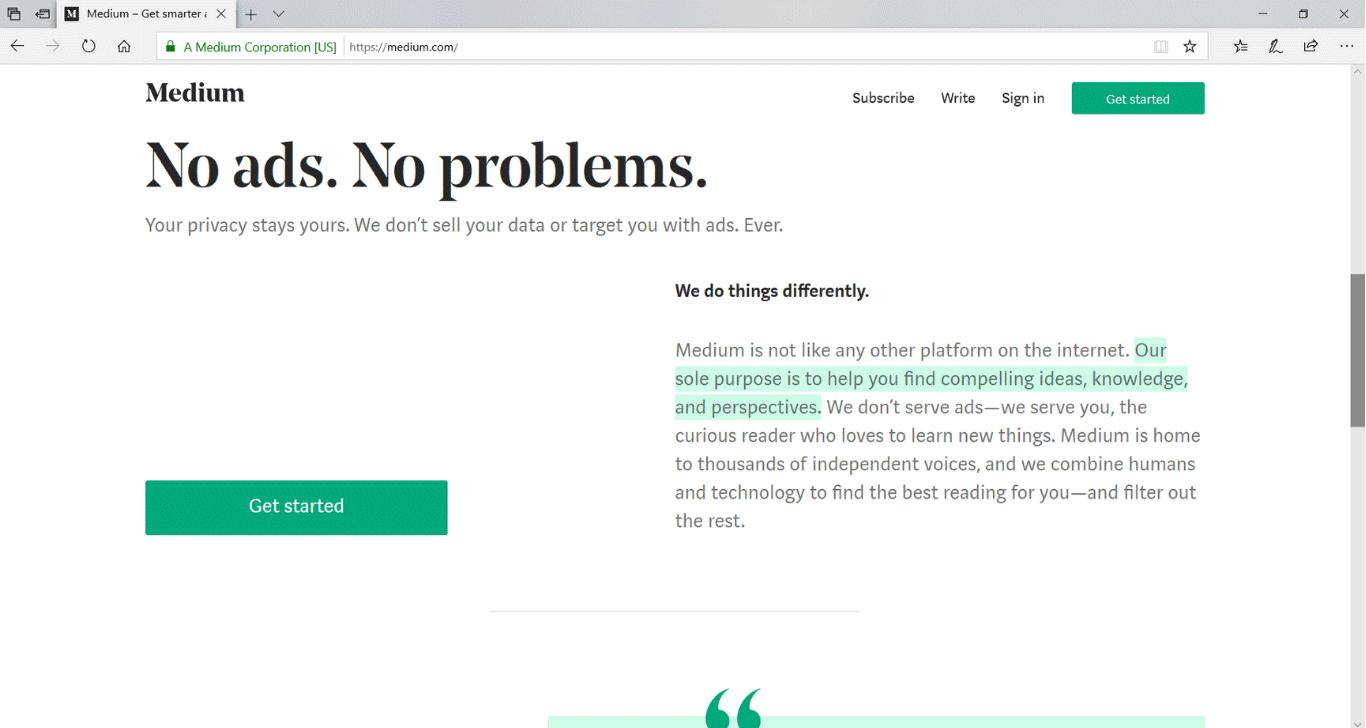
It is a place where you can read and write in-depth articles from various niches.
However, Medium has a huge downside. It doesn’t allow you to brand your blog. You cannot even add a custom domain, let alone the design. So, don’t expect to make a brand out of your blog on Medium.
If that’s not a concern, Medium offers a few good things too. Its community of readers can vote and comment on your articles. Instead of building an audience from scratch, Medium's community can give you a headstart.
Another interesting community-feature on Medium is Clapping. A reader can clap 1 to 50 times for your article to show his/her support.
But, can you make money from Medium blogs?
Yes, but not with ads or affiliate marketing. Instead, you can join the Medium Partner Program and put your articles behind their paywall. It is possible to do affiliate marketing but you should strictly comply with the platform's terms.
When your readers pay their subscription fees, you earn a portion of it. However, this feature is available in only 34 countries. That’s because Stripe is Medium’s payment provider, which is still not available in most nations.
- Cost: Free
- Publishing experience: Clean and clutter-free interface for writing and editing content.
- Flexibility: Almost zero.
- Ideal for: Writers who publish in-depth content, but not bothered about their branding or identity.
- Twitter follows: 2.2M
3. WordPress.Com
Do you know that WordPress comes in two forms?
- WordPress.Com (Platform-as-a-service)
- WordPress.Org (Open-source)
People often confuse between the two.
First, let us see what WordPress.Com has to offer.
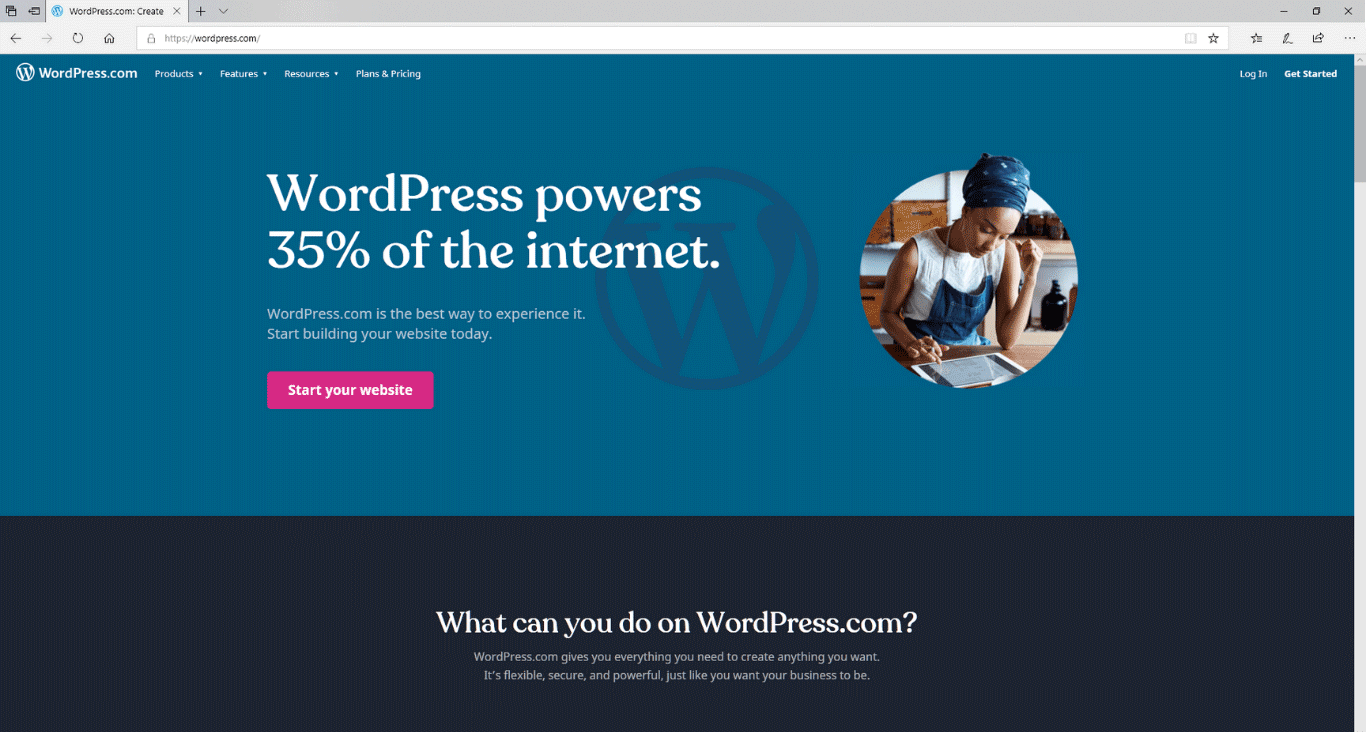
Compared to Tumblr or Medium, WordPress.com gives you a lot more freedom. You can create short-form or long-form posts, switch themes, change fonts, insert ads, and so on. So, it is more apt to see WordPress as a CMS rather than just a blogging platform.
However, to add a custom domain, you have to upgrade to a paid plan. The free account comes with only 3GB of storage. The website will be hosted on a wordpress.com subdomain. If you choose Blogging as the primary objective while registering, you can also select a .blog subdomain. For example, if your website is a travel blog, you can put it under yourname.travel.blog.
Currently, there are four paid plans - Personal, Premium, Business, & eCommerce.
With Business and eCommerce plans, you can even add custom plugins or themes, which makes it highly extensible.
- Cost: Free, Premium starts @ $5/mo
- Publishing experience: WordPress uses the Block Editor, which allows you to add all sorts of elements within a blog post. Although it’s not as clean as Medium’s interface, there is no lack of power.
- Flexibility: With a free plan, you can only use free themes to customize your site’s design. To use custom themes, you need at least the Business plan, which starts at $25/mo.
- Ideal for: All types of blogs, personal or professional.
- Twitter followers: 1.6M
4. WordPress.Org
Unlike WordPress.Com, WordPress.Org does not provide a platform (i.e., hosting). Instead, it gives only the software, which is open-source.
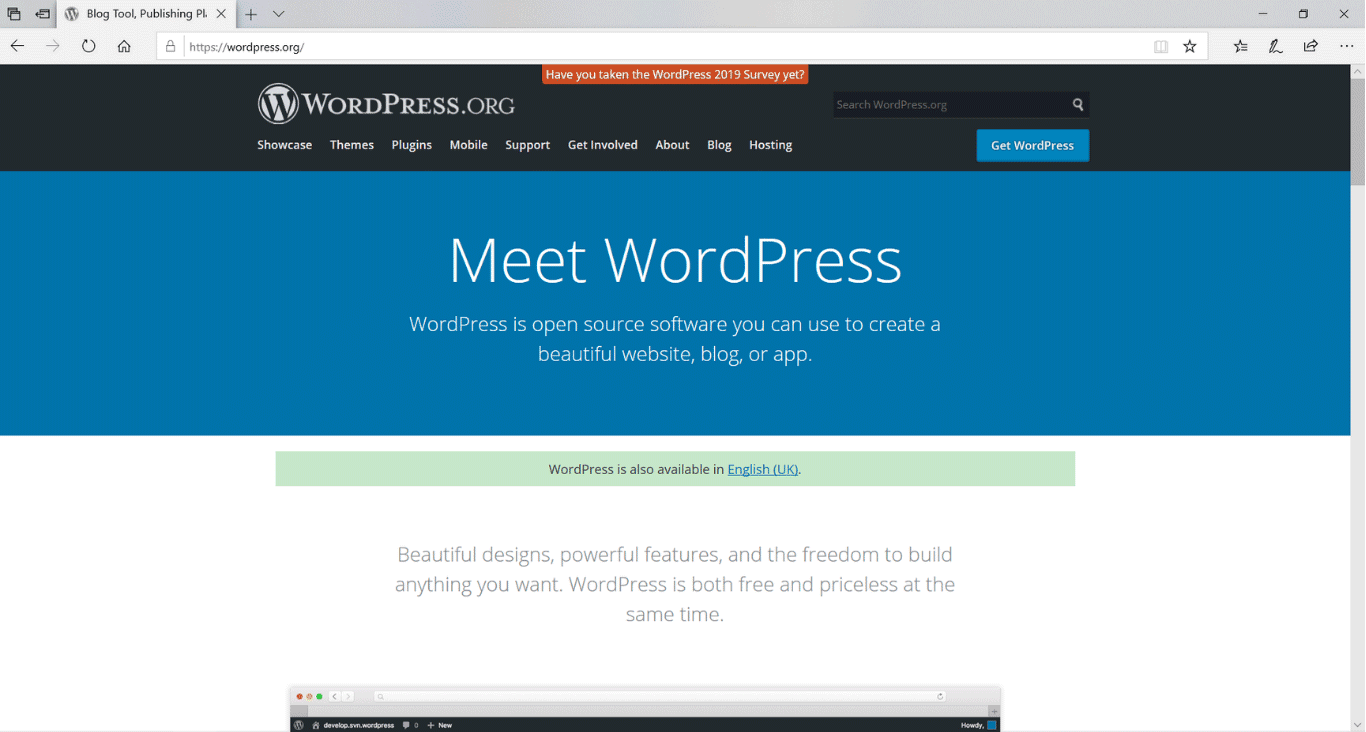
So, it is your job to find a good web host and install the WordPress software on it.
- See also: Best hosting providers for WordPress
Also, you have to maintain it and update it regularly.
Although it can seem a bit tedious for a beginner, it’s not that difficult. Almost all web hosts offer one-click WordPress installations.
The main advantages?
-
Since you are self-hosting your blog, you retain complete control and ownership over your site and its content. Nobody can shut your site down overnight. That’s why most serious bloggers use self-hosted WordPress.
-
Infinite flexibility. You can add any free or premium plugins and custom code to develop your site in any way you wish.
In short, the full power and flexibility far outweigh the little inconvenience caused by self-hosting your website.
- Cost: The core WordPress CMS software is open-source. However, a reliable host can cost anywhere from ~$1/mo to hundreds of dollars per month.
- Publishing experience: WordPress evolved a lot over time, so there is no shortage of power. The new Block Editor has taken it to the next level. You can also use page visual page builder plugins for maximum customizability. However, the interface is not as sleek as Medium’s editor.
- Flexibility: You can shape a WordPress website site in any way you want. The learning curve is a bit steeper, though.
- Ideal for: All types of blogs, personal or professional.
- Twitter followers: 636K
5. Wix
Wix is not truly a blogging platform. Instead, it is a drag-and-drop website builder.

Then why I included it here? Because Wix has a Blog module, which is sufficient for small blogs.
As a website builder, Wix has an impressive collection of free templates. It gives you the power to create a great-looking website within minutes, even if you don’t have any design knowledge.
So, if you wish to add a blog section to an existing Wix site, you don’t need to look anywhere else.
Otherwise, if blogging is your primary goal, there are better options than Wix, like WordPress. Wix lacks some essential features, like post scheduling.
- Cost: Free version available, premium starts at $5/mo
- Publishing experience: The editor is basic, lacks a few important features.
- Flexibility: Not so flexible beyond what Wix offers.
- Ideal for: Good for running a blog alongside your main website.
- Twitter followers: 416K
6. Blogger
About 8 to 10 years back, Blogger vs. WordPress discussion was a hot topic in the blogging sphere.

Back then, Google’s Blogger was a great option to start a free blog under a .blogspot subdomain. My first blog, too was on Blogger, later I moved it to self-hosted WordPress.
Although Blogger’s popularity has diminished, it’s still available and is quite useful as a free service. If you are a beginner, you can use it to get a feel of blogging. While the majority of people use Blogger for personal blogs, you can use it for professional blogs also.
Since Blogger does not offer any paid plans, there is not much room for growth. You will start feeling the need to move to another platform as your blog grows.
But unlike Medium, Blogger allows full control over the HTML templates, which is a big advantage.
- Cost: Free, no paid version available
- Publishing experience: Although free, Blogger’s editor gives enough options to craft your blog posts. Better than Wix IMHO.
- Flexibility: Not quite flexible, no option to add any extensions. However, you can customize the layout and HTML code. The sidebar is also useful with a couple of built-in widgets like archives, custom HTML, etc.
- Ideal for: Basic and personal blogs.
- Twitter followers: 237K
7. Squarespace
Squarespace is another website builder, like Wix. But it has more powerful blogging features than the latter, like post scheduling and sidebars.

Since Squarespace offers excellent templates, you don’t need to worry about your blog design looking amateurish.
Also, Squarespace won’t overwhelm you with plugins, as in WordPress. That’s another reason why many people prefer Squarespace over other platforms.
- Cost: Squarespace gives a 14-day free trial, after which you have to upgrade to a paid plan. Pricing starts at $12/mo for the Personal plan.
- Publishing experience: The WYSIWYG is sufficient for most bloggers.
- Flexibility: Not as flexible as WordPress, but better than Wix.
- Ideal for: Personal and professional bloggers.
- Twitter followers: 146K
8. Ghost
Have you heard about headless CMS?
Ghost is an example of such a system made with Node.js. Launched in 2013, Ghost aims to be a modern alternative to WordPress, giving more focus to blogging and publishing.
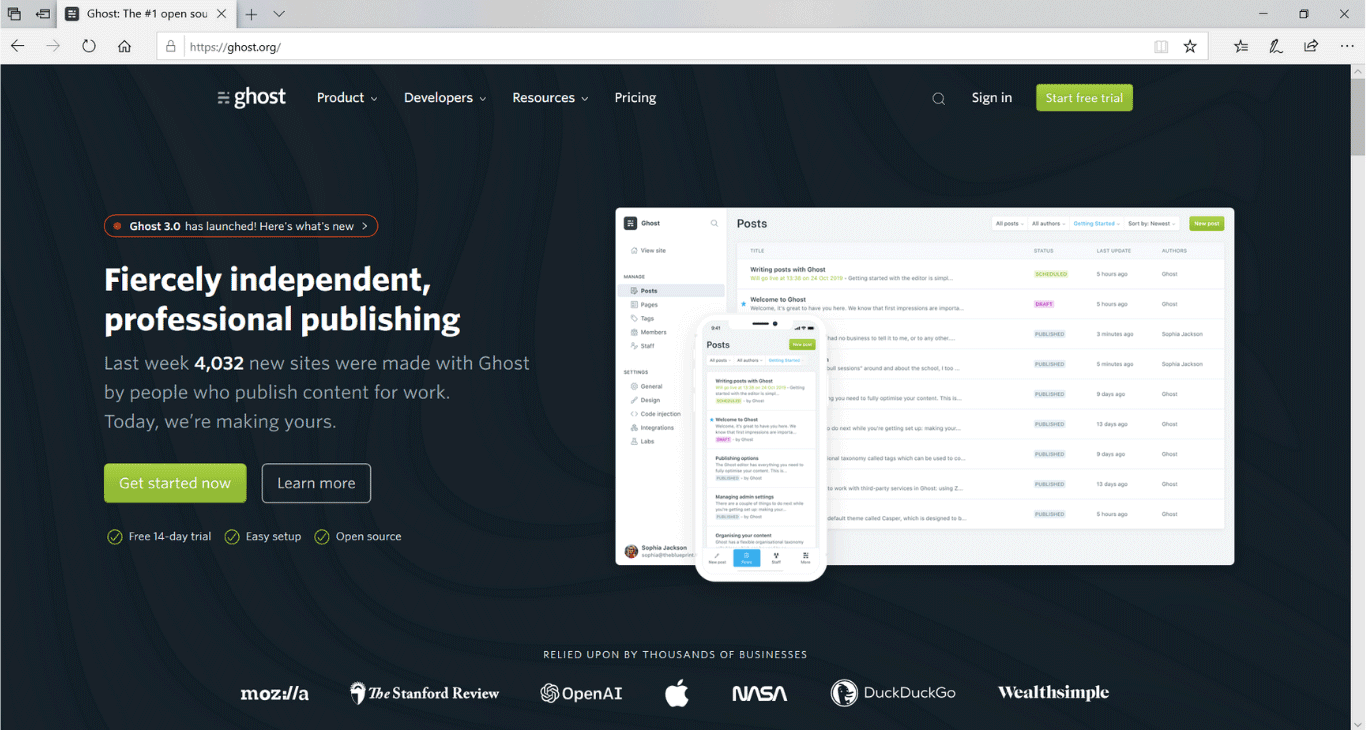
If you are a developer, you might know what it is and how to create a JAMStack website.
Unlike monolithic systems, the frontend and backend of a headless CMS can be separate.
The heart of Ghost CMS is its Core API. The admin and frontend sites interact with this API to transmit data.
WordPress also offers a REST API which allows you to do almost the same thing. But if you prefer a modern tech stack, Ghost is a better option written in Node.js, compared to WordPress written in PHP language.
Since the software is open-source, you can install it on any VPS or Cloud servers. While I am checking, DigitalOcean is offering a one-click Ghost installation image.
Otherwise, if you don’t like managing a server by yourself, you can try Ghost Pro. It is a managed hosting for Ghost CMS.
- Cost: The Ghost software is free and open-source.
- Publishing experience: Ghost’s primary focus is on blogging so that you can get a better experience than even WordPress.
- Flexibility: Highly flexible if you know modern web development using Node.js
- Ideal for: All types of bloggers.
- Twitter followers: 32.5K
9. Typepad
Launched in 2003 and currently owned by Endurance International Group, Typepad is an old contender in the blogging world.
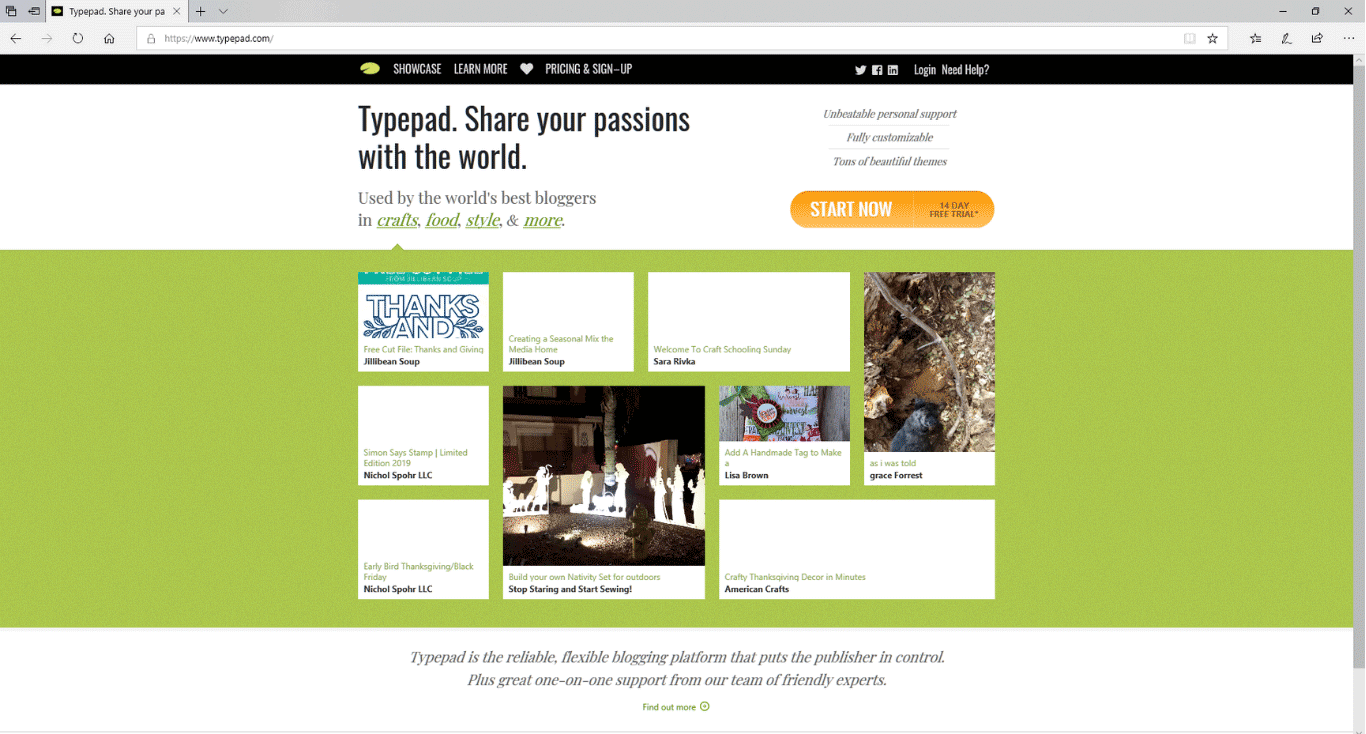
Despite its age, it is very much alive, and many people like the platform.
However, many of the blogs and Typepad’s website itself pose a decade old look and feel.
- Cost: Typepad does not have a free plan. Pricing starts at $8.95/mo.
- Publishing experience: As in the previous versions of WordPress, Typepad uses TinyMCE to power its post editor. Albeit its old look, it is powerful.
- Flexibility: Limited flexibility as it is hosted by Typepad, you can customize the themes though.
- Ideal for: Bloggers looking for an easy way to start publishing.
- Twitter followers: 16.5K
10. Jekyll
Know the three main advantages of a static website?
- Speed
- Security
- Lowest cost
Jekyll allows you to generate a static blog. You can write content and then run Jekyll on your local machine to convert it into HTML. Then you can upload it to any web host to start serving your blog.
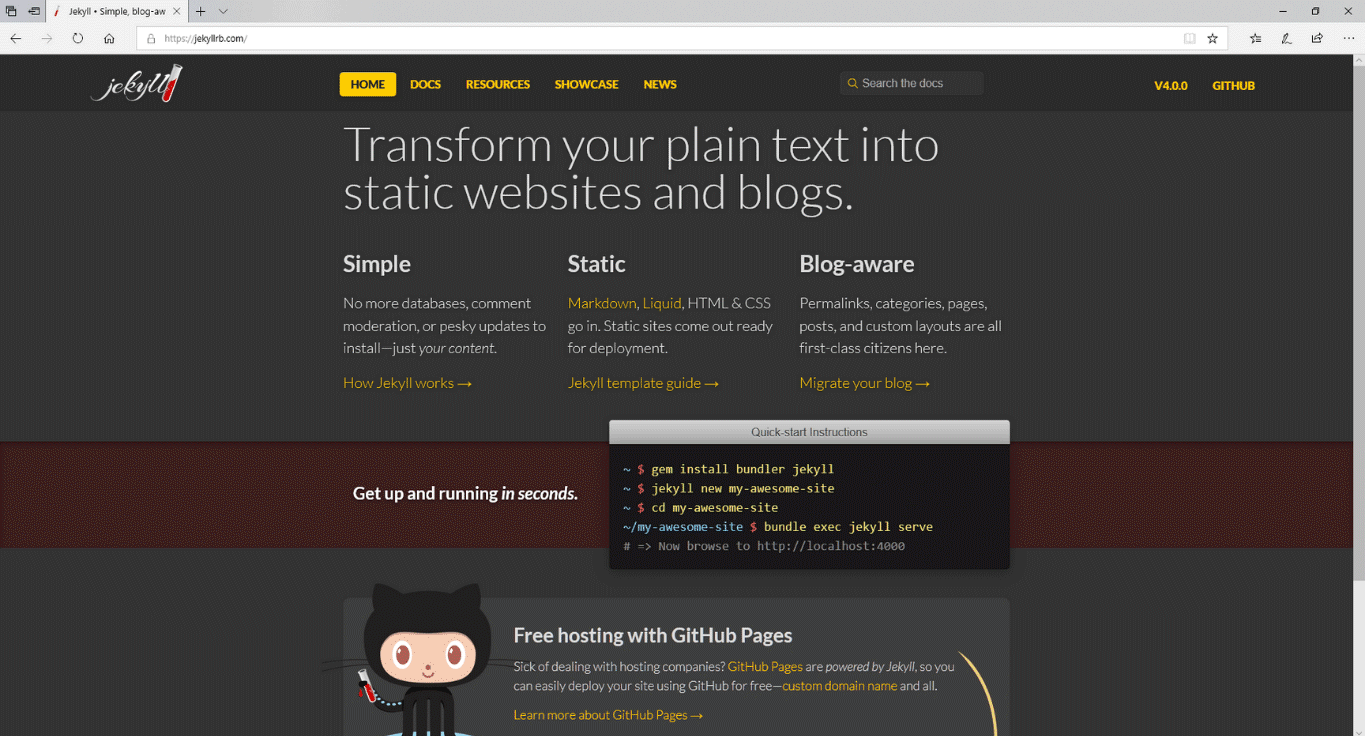
Since a static website needs no further processing, your site will be speedy. Also, no one can hack it as there is no database. Everything is in plain HTML files.
The downside is, you have to trade-off a lot of power and flexibility. You cannot directly add anything dynamic, like search or comments. Also, uploading changes to the live server can quickly become a cumbersome task as your blog grows.
- Cost: Jekyll is free; you can even host it on free solutions like Github Pages.
- Publishing experience: Use Markdown to write posts.
- Flexibility: Not so flexible or scalable, it is only a static site.
- Ideal for: Small blogs with a handful of posts.
- Twitter followers: 7K
But is Jekyll the only static site generator?
No.
Hugo and Gatsby are good alternatives you can try. Hugo is developed using the Go programming language, while Gatsby is javascript-based. Watch this video showing how to create a static blog using Hugo.
Conclusion
Now I hope that you have got an idea about the different blogging platform choices available.
These are my conclusions:
- If you prefer power and flexibility and don’t mind managing your host, self-hosted WordPress.Org will be the right choice.
- Need WordPress experience, but a managed environment? Try WordPress.Com
- Need a magazine-like publishing experience? Medium is the way to go.
- Microblogs? Tumblr for sure.
- Blog, along with a website builder? Then choose Wix or Squarespace.
- Are you a developer or a person who prefers modern tech-stack and great publishing experience? Maybe Ghost is for you.
What do you think? Which is your favorite blogging platform?


